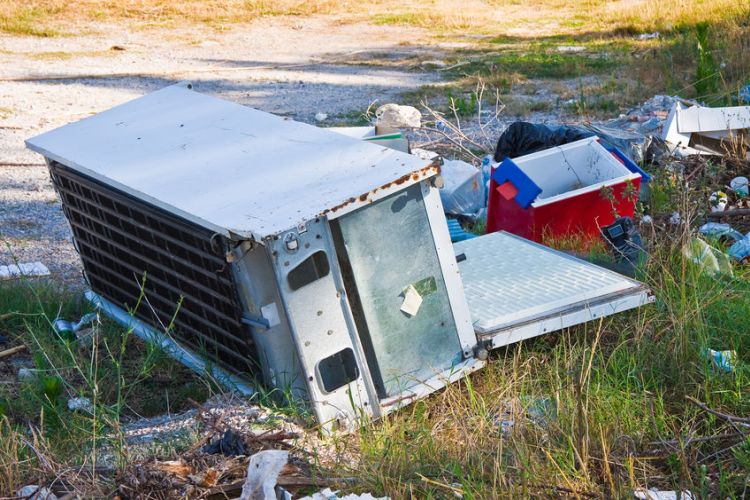
The Environment Agency has warned farmers and landowners to be vigilant for criminals who target their land and buildings to dump illegally collected waste.
The agency has warned that networks of organised criminal gangs operating across the country are targeting privately owned property and land, particularly in rural locations, to dump rubbish collected through illegal means.
In 2023, its survey found 85% of the landowners and farmers who took part reported being affected by small-scale fly-tipping and 20% by large-scale fly tipping.
This June, research conducted by the NFU also revealed 85% of respondents felt the problem of fly-tipping in their area had either not changed or become worse in the last five years.
If waste is dumped on privately owned land, it is the responsibility of the property or landowner to clean it up at their own expense.
Those affected can face costs of more than £200,000 to clear illegally dumped waste from their premises, according to the Environment Agency.
Waste crime costs the economy in England an estimated £1 billion a year through evaded tax, environmental and social harm, and lost legitimate business.
The Environment Agency said it is taking action against these criminals, conducting site inspections and prosecuting guilty parties to the full extent of the law.
The agency's deputy director of waste regulation, Steve Molyneux, warned that there are networks of criminal gangs operating across the country "just waiting to spoil it for everyone".
He said: “They may offer owners cash to store waste at their property or on their land, promising to remove it later. They won’t. Some don’t ask. They break in, dump waste they’ve illegally collected and disappear.
“Waste criminals need access to places to dump the rubbish they illegally collect – but your vigilance can stop them. Shutting them out of property and land is just one tactic to scupper these rogues.”
Country Land and Business Association (CLA) president, Victoria Vyvyan warned that fly-tipping "is a crime that is blighting rural communities".
Farmers and landowners bear the cost of removing rubbish and they pay on average £1,000 to remove waste, she said.
"This is not a victimless crime – in some cases they have paid up to £100,000 to clear up other people’s mess or risk facing prosecution themselves.
“It’s not just litter blotting the landscape, but tonnes of household and commercial waste which can often be hazardous – even including asbestos and chemicals – endangering farmers, wildlife, livestock, crops and the environment."
Steps to take
The Environment Agency has compiled steps for farmers and landowners to follow to protect themselves against waste criminals:
• Check any empty land and property regularly and make sure it is secure;
• Carry out rigorous checks on prospective and new tenants;
• Be vigilant and report any suspected illegal waste activity to the Environment Agency’s 24-hour incident hotline: 0800 80 70 60.?
